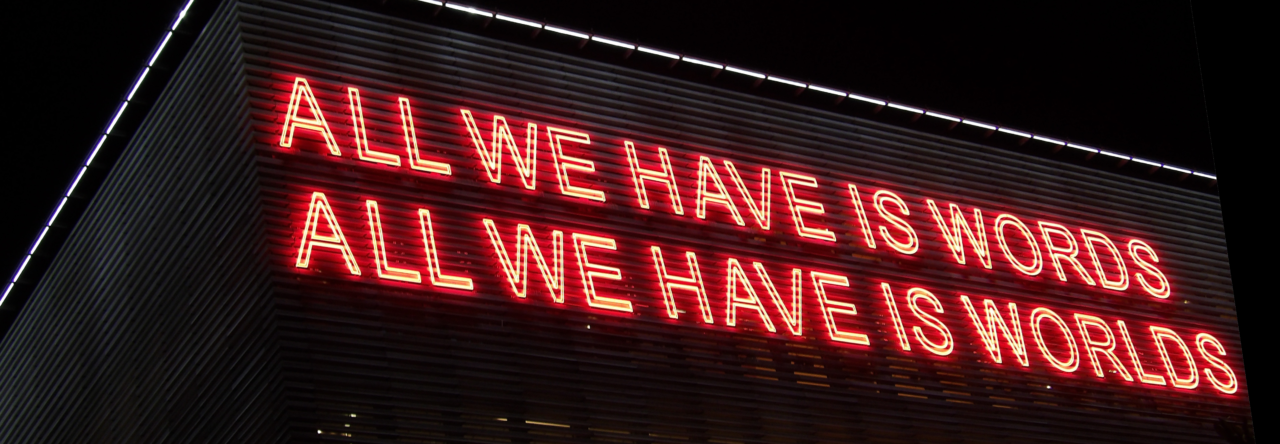As I sit down to write, my natural inclination is to take the blank page (blog) and impose a narrative structure on it — probably comes of too much novel-writing. But I think it may actually work out, in a loose sense, to organize my Narrative Futures experience into chapters and acts and, hopefully, a forward trajectory in which the strands of inquiry and personal arcs eventually come together in the final project. So I think the way to start is with a prologue, ideally the kind of prologue that sets context and establishes some of the big questions of the piece, not the kind of prologue that makes critique partners/professors/editors comment, “This is why prologues should be outlawed!”
As the central character of this particular blog, I would say I’m starting from a place of curiosity, and also of directionlessness, in that I have a lot of ideas about what I might be interested in, but haven’t yet found a way to combine them into something fully fleshed out, nor a framing or approach that feels right. I hope my time in EFI will expose me to new methods, creative forms, and ideas that will help me transform my various interests from a list of cool things into something integrated and purposefully directed.
Academically, my two main areas of focus right now are education/edtech, and AI/computational approaches to creative writing and literature. I’ve been interested in these fields for some time, but haven’t had a chance to study them formally, so I’m excited to broaden my horizons by both learning about some of the theoretical underpinnings and being exposed to new-to-me creators/researchers and the cutting-edge approaches they’re using. And a highlight of the program already has been my conversations with classmates, many of whom have fascinating ideas and experiences surrounding the fields I’m interested in. I’m very excited to be surrounded by like-minded peers, and I think that will take my experience in the program in directions I can’t imagine at this point.
The professional angle is a big question mark for me. I’m not sure if I want to return to edtech, find a different industry job, remain in academia, pursue a creative career full-time… and although I’m inclined to design my project around whichever of those paths I want to pursue, a) I don’t know that I can make that decision in time, and b) I wonder if pursuing the project that I’m most intellectually and creatively passionate about (regardless of career trajectories) may be a better use of my limited time in EFI. But I hope to use my time here — the courses themselves, but also the opportunity to learn from others’ career paths, and the additional events and learning opportunities — to explore the options open to me. One of my Narrative Futures classmates said it best: The jobs coming out of the EFI degrees don’t necessarily exist yet, meaning that we may need to create them. Which is exciting but also intimidating.
Finally, the creative side of things. At severe risk of sounding cheesy, this is where my heart lies. I’ve spent a lot of time over the past couple of years learning alongside a wonderful group of writers whom I met during the pandemic. From them, I’ve learned new ways of planning projects; how to rip a draft to pieces and put it back together in a more perfect form; even how to write and publish short stories, which I once found impossibly intimidating. But this group (like many writers and creatives) generally falls on the side of being fearful of AI and new technologies, pushing them away, and seeing only the harms they’re perpetuating and the risks they pose. While these fears are justified and completely understandable, I as a writer don’t want to be governed by fear, and I believe that having more creatives coming into AI/tech spaces is one of the ways we can safeguard against harm. I want to envision a future where these new technologies can be a tool or a medium that opens up new creative possibilities for artists who would like to use them, and I want to figure out what my own process and practice looks like within that future. Right now, if I had to choose a single central question to guide my time in Narrative Futures, this would be it.
So that’s my prologue and my context. The last thing I want to do is to start an ongoing “compost heap” (I first heard the term in this context in Neil Gaiman’s Masterclass), where I briefly note down any ideas or works that have particularly stuck with me through the week and seem fertile ground for my own creative pursuits:
Compost heap:
From the Narratives of Digital Capitalism lecture, “Introduction to Linguistic Capitalism”: Kaplan (2014) studied Google Adwords and how Google has created an economy and accumulated massive power based on assigning monetary value to words (!) — objects that have no intrinsic monetary value and are not owned by anyone. What does this concept look like if made literal and taken to an extreme? Spec fic where you are literally charged for the words you use? How would it be tracked (microchips or some other physical augmentation, and if so, what other implications does this have for privacy)? What systems of power and inequality arise around this? How would colonialist histories and racist/sexist/etc. systems evolve in this world? What other modes of communication evolve in a world where you pay by the word? (Thinking here about “women’s script” (女書, nüshu) used historically by women in China, its uses and also what history/stories may have been lost because it was not officially sanctioned.)



Leave a Reply